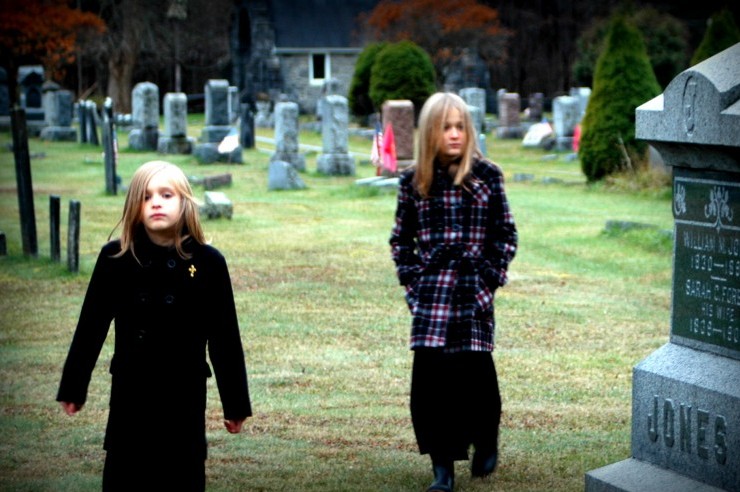Is Free Will Scientifically Dead?
by Stacy A. Trasancos | August 6, 2014 12:01 am
 [1]
[1]
Brian Greene, an American theoretical physicist at Colombia University[2] and possibly the most well-known string theorist, was recently quoted[3] by LiveScience, “I think free will bit the dust long before multiverse theory.” He said scientific equations can describe the particles that make up all matter, including humans, because everything has a “fundamental microphysical underpinning.” Determinism is not a new idea for physicists.
Of course, Christian apologists do not accept this conclusion about free will or determinism. Free will is a spiritual power endowed to humans by God. It seems a contradiction of the wildest sort for a scientist to conclude that free will is deader than multiverse theory. Science cannot prove or disprove spiritual truths. (Multiverse theory is another story.*)
However—and I understand having been a non-religious scientist myself once—Brian Greene is saying exactly what a non-believing physicist would logically conclude. The reasoning begins with an axiomatic disbelief in God, and follows. If there is no faith in God, there is no faith that anything spiritual exists. If there is nothing spiritual, free will only lives if it is explainable in physical terms.
A physical scientist must hold another axiomatic belief about the world. He must expect the world to be ordered and symmetrical, otherwise there is no basis to expect the predictive power of experiments or the correspondence of mathematics to the real world. To put the two axioms together, Greene’s conclusion is logical. If only matter exists and if matter obeys laws of physics, then humans are objects obeying determined laws of physics. Free will is akin to a sensation, real only because we feel it.
The problem is—and I knew this before I admitted it—those two axioms fail to explain why the world is ordered. I found the answer “it just is” unsatisfying, and that flatness aided my assent to supernatural faith. It was a most reasonable assent of the will, an assent beyond science.
I say that to highlight where, I think, the argument for free will ought to remain for apologists and physicists alike. It should remain in the a priori axiomatic reasoning before anyone gets to physics. Greene is doing that. Is free will scientifically dead as far as science can say? Well, yes. Free will was never scientifically alive.
For Catholics, one of the axioms is different and they both fit beautifully together. The Christian worldview expects to find order in the world too because it is created by God, the origin of rationality. It is de fide dogma that humans have a rational soul with the powers of intellect and free will. The soul is the form of the material body. As St. Anthony of Padua said, “The life of the body is the soul; the life of the soul is God.”
God grants free will to the human person just as He grants predictability to physical laws. Free will does not need a scientific space. To begin to understand free will you have to be open to faith, “the substance of things to be hoped for, the evidence of things that appear not[4].” Physics points to faith, but physics can’t explain what lives beyond physics.
References and Further Reading
- Like I said before[5], I recommend Live Science. The writers do not reflect Catholic teaching (that’s not their purpose), but they provide good journalistic coverage of the latest science news.
- I love this 2005 TED talk given by physicist Brian Greene[6]. With engaging enthusiasm, he explains superstring theory, the idea that miniscule strands of energy vibrating in 11 dimensions create every particle and force in the universe.
- The de fide dogma that man consists of two essential parts, a material body and a spiritual soul, were taught by the 4th Lateran Council and the Vatican Council. See Denzinger 428[7] and 1783[8]. The de fide dogma that the rational soul is per se the essential form of the body was taught by the Council of Vienne. See Denzinger 481[9]. The de fide dogma that every human being possesses an individual soul was taught by the Fifth General Lateran Council. See Denzinger 738[10].
- These are summarized in Ludwig Ott’s Fundamentals of Catholic Dogma, Chapter 2, The Doctrine of the Revelation regarding Man or “Christian Anthropology,” I. The Nature of Man, § 14. The Essential Constituent Parts of Human Nature, Sections 1-3.
- St. Thomas Aquinas on “faith,” Summa Theologiae, II-II, q. 4, art. 1[11].
*I am not opposed to physicists studying multiverse theory, for a number of reasons, the main one being I am not a theoretical physicist and I think they should be the ones to decide. Secondarily, I realize strange sounding theories decorate the history of physics and such mathematical exploration was necessary. Would love to hear your thoughts, perhaps for a future essay. Email me[12].
If you liked this article, please share it with your friends and family using the Recommend and Social Media buttons below and via email. We value your comments and encourage you to leave your thoughts below. Thank you! – The Editors
- [Image]: http://www.integratedcatholiclife.org/wp-content/uploads/November-2013-040-e1407250030176.jpg
- theoretical physicist at Colombia University: http://physics.columbia.edu/people/profile/406
- quoted: http://www.livescience.com/46040-do-we-live-in-a-multiverse.html?utm_source=feedburner&utm_medium=feed&utm_campaign=Feed%3A+Livesciencecom+%28LiveScience.com+Science+Headline+Feed%29
- the substance of things to be hoped for, the evidence of things that appear not: http://www.newadvent.org/summa/3004.htm
- before: http://www.integratedcatholiclife.org/2014/07/trasancos-the-universe-shouldnt-exist/
- this 2005 TED talk given by physicist Brian Greene: https://www.ted.com/talks/brian_greene_on_string_theory
- 428: http://denzinger.patristica.net/#n400
- 1783: http://denzinger.patristica.net/#n1700
- 481: http://denzinger.patristica.net/#n400
- 738: http://denzinger.patristica.net/#n700
- II-II, q. 4, art. 1: http://www.newadvent.org/summa/3004.htm
- Email me: http://stacytrasancos.com/contact-me/
Source URL: https://integratedcatholiclife.org/2014/08/trasancos-is-free-will-scientifically-dead/